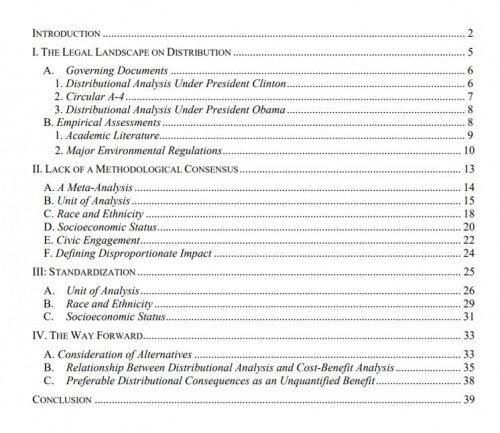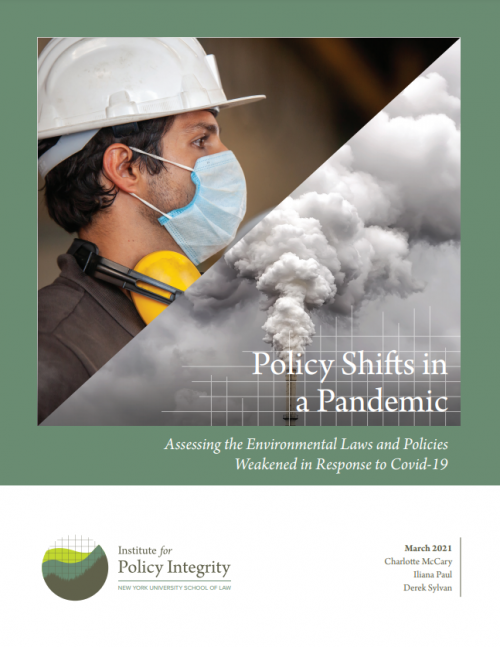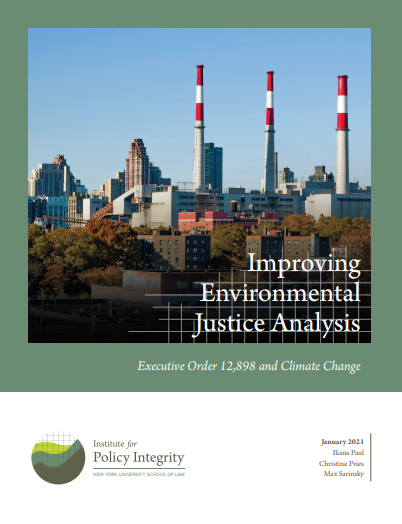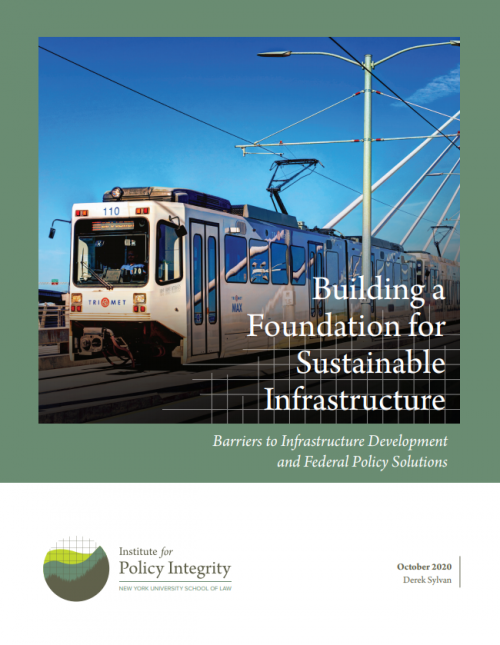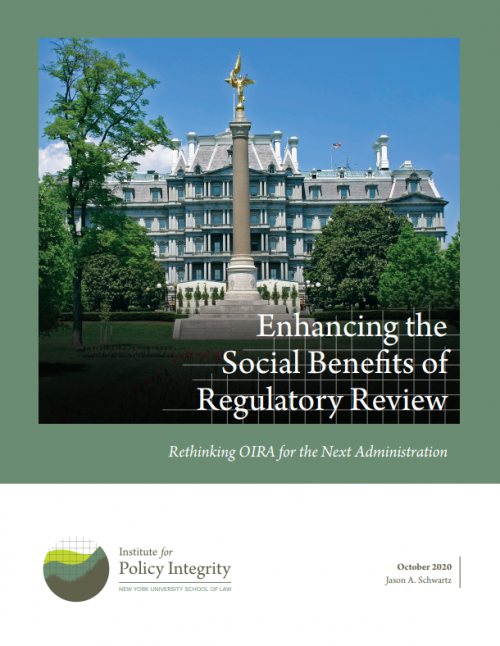-
Comments to New Jersey on Solar Incentives
The New Jersey Board of Public Utilities (BPU) released a straw proposal for its Solar Successor Program. We submitted comments addressing a question about solar projects' potential benefits to environmental justice (EJ) communities. Our comments encourage BPU to consider the inclusion of an environmental justice adder and reommend that BPU explore an adder that would deliver material benefits to EJ communities.
-
Distributional Consequences and Regulatory Analysis
Published in Environmental Law
This article examines what it would take for the Biden effort at incorporating environmental justice into regulatory decisionmaking to succeed where the Clinton and Obama efforts failed. It argues that agencies will need to be provided with clear guidance on the methodologies used to conduct distributional analysis, and that the lack of a standardized approach is part of the reason prior efforts failed. It further argues that agencies will need to take seriously the already existing requirement of analyzing the distributional consequences of different regulatory alternatives. Otherwise, they will never be in a position to answer the key question in this area: when are the better distributional consequences of one alternative sufficient to overcome another alternative’s higher net benefits?
-
Policy Shifts in a Pandemic
Assessing the Environmental Laws and Policies Weakened in Response to Covid-19
The Covid-19 pandemic has led federal, state, and municipal policymakers to adopt a number of measures that suspended, delayed, or relaxed a variety of environmental safeguards. Our report analyzes these pandemic-related policy shifts and their impacts on public health and the environment. We also provide guidance on how agencies can increase transparency about these actions, counteract detrimental effects, and preemptively create guidelines to improve responses in a future emergency.
-
Comments on New York PSC’s Initial Report on Power Grid Study
The New York Public Service Commission (PSC) requested input on its initial report on the New York Power Grid Study. Our comments recommend steps the PSC can take to not only achieve emissions reduction goals, but also give appropriate priority to environmental justice.
-
McTeer Toney Gives Testimony on Climate Risk Disclosure in House Committee Hearing
Heather McTeer Toney, Climate Justice Liaison for the Environmental Defense Fund and Senior Advisor to Moms Clean Air Force, testified in a hearing on corporate climate risk held by the House Financial Services Committee. Included with her submitted testimony is our report with the Environmental Defense Fund on how the Securities and Exchange Commission can issue new, mandatory disclosure rules focused on climate risk.
-
Improving Environmental Justice Analysis
Executive Order 12,898 and Climate Change
Distributional and equity concerns have typically received short shrift in federal administrative decisionmaking, particularly with regard to actions with climate-change impacts. This report aims to aid advocates and policymakers in meaningfully addressing the disparate climate impacts of federal actions.
-
Building a Foundation for Sustainable Infrastructure
Barriers to Infrastructure Development and Federal Policy Solutions
Most categories of American infrastructure—from transportation and water systems to public school buildings and electricity meters—are in dire need of modernization, and climate change is compounding this challenge. Our report provides policy recommendations at each stage of the infrastructure lifecycle, from project planning and analysis, through financing, construction, and maintenance. We explain how a realigned approach to infrastructure can boost the economy while addressing threats from climate change and prioritizing social equity goals.
-
Enhancing the Social Benefits of Regulatory Review
Rethinking OIRA for the Next Administration
In recent years, federal leadership has distorted the practice of regulatory analysis and has eroded the integrity of the government’s regulatory review structure as coordinated by the Office of Information and Regulatory Affairs (OIRA). The result has been a torrent of deregulatory actions that have worked against the best interests of the American people and their health, safety, environment, and financial well-being. Our report details the path forward on regulatory review, which is to first surgically excise recent distortions, and then to reaffirm the best principles and practices from the past, while adding key corrections and enhancements. Implementing the reforms recommended in this report will refocus OIRA on helping agencies once again use regulations to maximize net social welfare.
-
Comments on Climate Damages from Farmington Mancos-Gallup RMP
The Bureau of Land Management and the Bureau of Indian Affairs forecast that resource management in New Mexico's Farmington Mancos-Gallup region would produce more than 300 million metric tons of cumulative greenhouse gas emissions under their preferred alternative. Our joint comments explain that the agencies should better evaluate the proposal's climate impacts using the social cost of greenhouse gases. We also submitted comments focused on the agencies' obligation to conduct environmental justice analysis under Executive Order 12,898.
-
Amicus Brief in Appeal of Conscience Protections Decision
Last fall, three federal courts—in the Southern District of the New York, the Northern District of California, and the Eastern District of Washington—vacated the Department of Health and Human Services’ conscience rule, which sought to expand healthcare providers’ rights to deny care on religious or moral grounds. In amicus briefs supporting the vacatur, Policy Integrity criticized HHS for, among other things, failing to consider the new policy’s likely health costs for women and LGBT individuals.
Viewing recent projects in Environmental, Energy & Climate Justice


